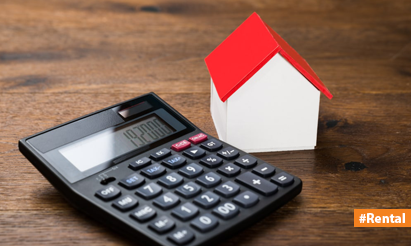Everything you need to know about the Delhi Rent Control Act
The Delhi Rent Control Act, 1958 was enacted by the Indian government in order to protect migrants living on the streets of Delhi.
The goal was to assist the population in resettling after the division and to make it easier for families to integrate into Indian society. Tenants in Delhi were granted authority against premature removal under the rent control legislation. It also prevented the financially challenged from being homeless, as they could not buy a home or apply for loans. One of the grounds for the Act’s slant toward tenants was because of this.
What does the Delhi Rent Control Act entail?
The government set a rent ceiling under the Act, that caused investors to lose interest. The Delhi Rent Control Act was revised in 1988 to exclude properties with monthly rates above Rs 3,500 per month. Landlords, on the other hand, do not have the power to raise the rent at this time. Furthermore, except under extraordinary situations, they are unable to evict tenants. The act safeguards the rights of tenants in Delhi and gives them certain basic rights.
Basic concepts of the Delhi Rent Control Act
- The Delhi Rent Control Act (DRCA) of 1958 contains the following essential rules and provisions for tenants and landlords:
- If there is no written contract specifying a date, the Act allows the renter to pay the rent by the 15th of the month. In addition, the tenant has the right to seek a documented receipt for the same.
- If the rent is paid on time, the landlord is not allowed to evict the tenant under the Act.
- In regard to the amount of rent, the Act concentrates on the term “standard.” This is why rental yields in central Delhi districts are so weak, and landlords are unable to dismiss tenants who pay such a small rent.
- The Act also states that even if the rented building is renovated, a landlord can raise the “normal” rent, although it cannot exceed 7.5 percent of the entire cost expended. Additional explanation for the deteriorating state of many buildings in central Delhi is that there is little incentive for landlords to fix them.
- The Delhi Rent Control Act also makes it harder for landlords to protest to tenants subletting their apartments.
The Delhi Rent Control Act is set to take effect in 2020.
After the adjustments and modifications to the Delhi Rent Control Act. There were calls for revisions in the code from homeowners’ associations and, in certain circumstances, tenants. The Delhi Rent Control (Amendment) Act of 1988 was the first amendment. The previous rent laws of 1958 did not apply to properties with monthly rents over Rs 3,500, according to section 3 (c) of the Delhi Rent Act 1995. Recent revisions to the act have made eviction laws more regulated. The Delhi Rent Act of 1958 was changed by the Model Tenancy Act of 2019 and the Delhi Rent Control Act of 2020.Registration and the establishment of a contract have become critical under the new regulations.
The very first copy will be handed to the tenants, and the second will be provided to the rent control authorities. If the tenancy period expires, it will be renewed on a month-to-month basis under the same terms and conditions. A renter will remain to be a tenant by law under these conditions and will be responsible for rent payment towards the property, according to Section 22 of the Delhi Rent Act, 2020.
In addition, the Delhi Rent Control Act 2020 allows for a security deposit of up to two months’ rent in the case of commercial property and up to one month’s rent in the case of non-private property.
Disclaimer: The views expressed above are for informational purposes only based on industry reports and related news stories. PropertyPistol does not guarantee the accuracy, completeness, or reliability of the information and shall not be held responsible for any action taken based on the published information.




